Weight Gain During Menopause
As if we didn’t have enough to worry about with the changes to our hair, skin and bodies during Menopause, the dreaded “middle aged spread” is just one more thing to add to the list of changes our bodies will go through. Weight gain during menopause, is, for most women, just another inevitable part of ageing, but there are some things we can do to minimise the weight gain, and feel a little more comfortable.
We spoke to Teresa Mitchell-Paterson ADV DIP NAT, BHSc Complementary Medicine, MHSc Human Nutrition (pictured), a leading naturopath and educator, who is also a nutritional advisor for Bowel Cancer Australia to get her tips on what causes weight gain during menopause, and what we can do about it. Here is what she had to say (and for more information on Teresa and her achievements, head to the bottom of this page).
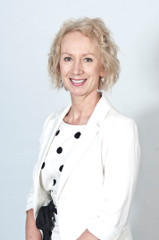
Many women notice subtle (and not so subtle) weight gain during menopause. What causes this?
There are three types of estrogen in a woman’s body: Estrone (E1), Estradiol (E2) and Estriol (E3).
Estrone is generally what we are left with after menopause, at the same time there is a lower percentage of progesterone produced. It is this imbalance that is largely responsible for weight gain, especially in the waistline and abdomen and may also cause cravings and fatigue in some women. Balancing E3 can help promote weight loss. Encouraging progesterone can also help. Progesterone balance is assisted by the adrenal gland hormones which can show signs of depletion during long term stress. It is important to support this delicate network as lower progesterone can lead to decreased thyroid function – which can also lead to more weight gain [1].
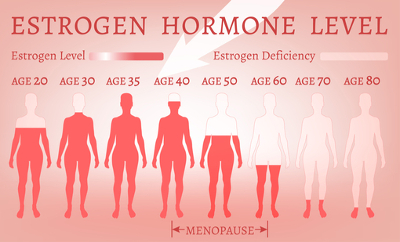

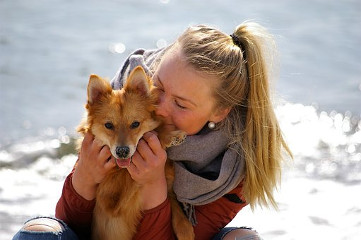
Women are going through many changes during this time. Is there anything that can be done to minimise the weight gain, without causing other side effects?
A healthy diet, one containing the building blocks for promoting healthy hormone regulation is essential. Foods that help to reduce a buildup of E3 through the methylation process are the Brassica family so try to incorporate a cup of these types of vegetables daily such as broccoli, broccolini, Brussels sprouts and cauliflower [2].
Eat less, sorry nobody wants to hear this one, but our basal metabolic rate drops as we age and we need to consume less. Measure your portion sizes and stick to the suggested weight for a serving (read more at the Australian Guide for Healthy Eating) [3].
Regular exercise can increase bone density, reduce weight, reduce stress and improve mood. Try engaging in 30-60 minutes of regular exercise daily, mix it up include some cardiorespiratory, weight training, stretching and relaxation such as yoga or Pilates. Even if you only complete 3 hours of exercise a week you will see benefits to your quality of life [4].
De stress, protect your adrenal function or support your stress with a good activated B vitamin. Stress is a major contributor to weight gain. Enjoy some relaxation time daily, meditate or go for a walk in nature. When the body is stressed more cortisol is produced unfortunately this may lead to a higher consumption of sweet and fatty food choices. In a study on women it has been suggested that when women produce large amounts of cortisol in stressful times they ate more kilojoules after the event [5]!
Some women experience extreme tiredness and hot flushes during menopause, and don’t feel like exercising. What would you recommend for these women?
Talk to a qualified naturopath or herbal medicine provider. The Ginseng family of herbs have a demonstrated track history in reducing fatigue and improving psychological symptoms in menopausal women. For hot flushes I suggest sage tea. It is not the tastiest tea but it is very effective at reducing debilitating hot flushes, try it with stevia as stevia has little to no calories and make the drink more palatable. (Always check with a healthcare professional before taking herbal remedies).
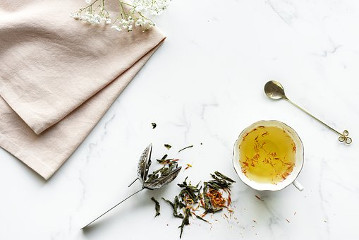
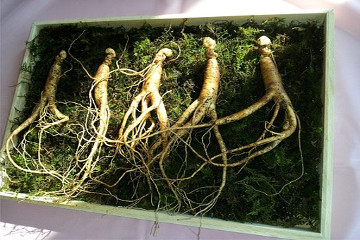
Of course you should always see a health practitioner for the more extreme side effects of menopause. Are there any supplements you can recommend to help not only the weight gain, but the milder effects of menopause in general?
The supplement Adreno Restore Plus is an all-rounder for stress and adaptation as it contains Withania and Siberian ginseng along with some beneficial B vitamins for adrenal and hormonal support. For hot flushes the combination of herbs in Femi-nan (which includes sage) have had a significant impact on the number and severity of hot flushes as reported by my clients in clinical practice. Both of these products are from the Eagle Healthcare range.
Do you have a recipe that may be of use during this time – lower calorie, and packed with vitamins/anti-oxidants?
Packing a meal with protein helps to relieve hunger and reduce binging. My favourite meal for a healthy nutritious breakfast, lunch or dinner is a three egg omlette. It’s quick tasty, filling and low in kilojoules a great belly buster!
Ingredients:
1 whole organic free range egg, 2 egg whites
¼ cup of mushrooms, ¼ cup of tomatoes, ¼ spinach, ¼ red peppers. ¼ cup of chopped peeled red onion
1 slice of whole meal wholegrain sourdough spelt or rye bread
¼ avocado mashed
1 teaspoon of Dukkha seeds
1 teaspoon extra virgin olive oil cold pressed
Method:
Heat a pan and add olive oil
Add vegetables to the pan and gently warm through
Mix eggs together until completely blended
Add egg to the pan and turn the heat down
Allow the egg to cook on one side and once cooked flip the omlette in two and heat for another 1-2 minutes until the egg is completely cooked
Serve with toasted bread of your choice topped with mashed avocado and Dukkha seeds.


Thank you Teresa, this has been super helpful. For anyone wanting more information, visit https://eaglenaturalhealth.com.au/health-wellness/.
What are your tips to avoid weight gain during menopause (or did you just embrace it)? Let us know in the comments below.
Teresa Mitchell-Paterson ADV DIP NAT, BHSc Complementary Medicine, MHSc Human Nutrition, has a clinical history in Integrative Naturopathy spanning over twenty years. She is an educator of final year clinical studies for Bachelor of Health students (Naturopathy and Nutritional Medicine). Teresa has also embarked in writing for evidence based naturopathic texts and is a spokesperson and advocate for naturopathic healthy lifestyle. For the past six years Teresa has been a nutritional advisor for Bowel Cancer Australia, and Health and Medical Panelist for the Memorial Winston Trust Fund.
Article References:
- Chrousos GP et al (1998). Interactions between the hypothalamic-pituitary-adrenal axis and the female reproductive system: clinical implications. Annals of Internal Medicine 129(3):229-240
- Westerlind KC (2003) The role of estrogen metabolism in aging. J Musculoskel Neuron Interact 3(4):370-373
- Eat for health (2015) Serve sizes. Australian Government: National Health and Medical Research Council. Retrieved https://www.eatforhealth.gov.au/food-essentials/how-much-do-we-need-each-day/serve-sizes
- Villaverde-Gutierrez C (2018). Quality of life of rural menopausal women in response to a customized exercise programme. Journal of Midwifery & Women’s Health 54(1):11-19
- Woolston C (2006) Stress and weight gain. Healthy Day News for Healthier Living. Retrieved https://consumer.healthday.com/encyclopedia/food-and-nutrition-21/food-and-nutrition-news-316/stress-and-weight-gain-645929.html


